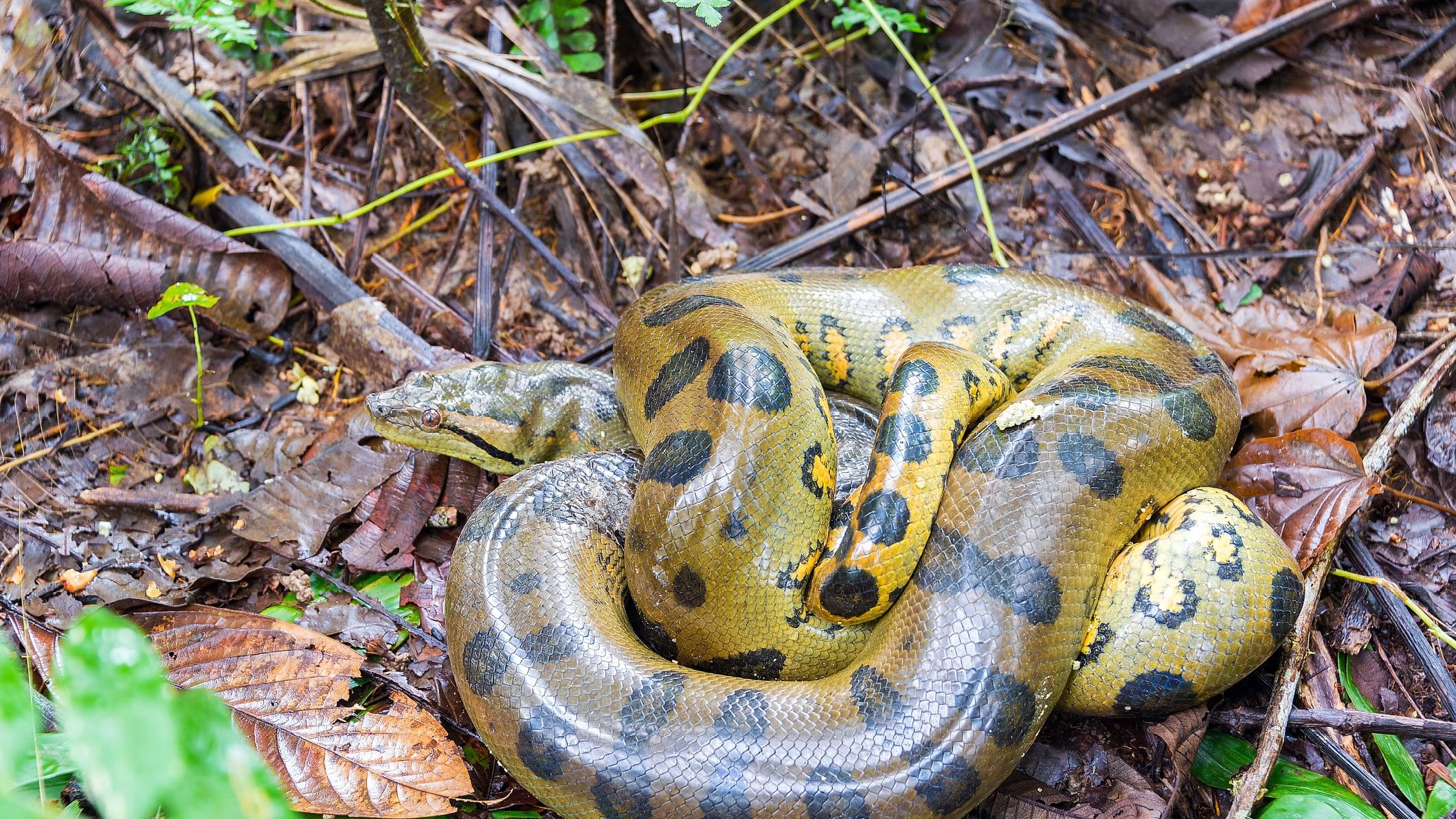
A yellow anaconda.
Credit: iStock Photo
Bengaluru: An attempt to smuggle 10 yellow anacondas into Bengaluru was busted at the Bengaluru international airport on Saturday, leading to the detainment of a Sakleshpur-based coffee planter, sources confirmed to DH.
Of the 10 snakes, three were dead on arrival from Bangkok in Thailand. The rest were sent back to Thailand on Sunday, sources from the customs department said.
Sources in the know confirmed that the accused was a 56-year-old man named Kaishar Jamil Ahamed. He had flown down to the city on Saturday midnight via a Thai AirAsia flight when the customs officials, working on a tip-off, intercepted him. He was detained after the snakes were discovered in his check-in luggage.
The snakes were roughly 3-4 feet long. They were likely caught in the wild and not bred in captivity. They were likely routed to India from South America via Thailand because the demand-dependent trade is highest there, said a source in wildlife conservation.
A senior officer with the Wildlife Crime Control Bureau said this was a rare occurrence in Bengaluru. “We have seen such cases of reptile trade in both Chennai and Tiruchirappalli international airports. It is not very common in Bengaluru,” he said.
Another source within the customs department confirmed this.
“Most such smuggling is intercepted at the Chennai airport. In Bengaluru, we see two or three cases a year; it is unusual. Chennai sees such a seizure almost every 10 days. We don’t know why this is now shifting to Bengaluru,” he said.
Thriving trade
Wildlife experts noted that reptiles and other exotic animals are in huge demand in the country as more people want to own live animals for display.
“Reptiles, especially live ones, are popular in growing urban areas, including cities such as Bengaluru, Mumbai, Kolkata and Chennai because money is not an issue for people who want to adorn their farmhouses and homes with live animals. There has been a psychological shift in buying choices,” said Dr Shekhar Kumar Niraj, former country head, Traffic India, the wildlife trade monitoring network, and former assistant management authority, western region, India, CITES (Convention on International Trade in Endangered Species of Wild Fauna and Flora).
He said Thailand, Singapore and Indonesia serve as major hubs for animal trade and seem to see such trade easily escape the scrutiny of customs officials.
“Large traders employ unlikely targets as ‘couriers’, get them on all-expenses-paid trips, give them some money for sight-seeing, and then enable them to smuggle in live animals to other countries,” he said, noting how cross-agency coordination, dedicated staff and necessary funds are the only way to clamp down on such illegal international trade.
Did you know?
The yellow anaconda belongs to Boidae family, a non-venomous and one of the largest snake species in the world. Endemic to South America, there is a trend of reptile trade that has become common at Chennai and Tiruchirappalli international airports, but is rare in Bengaluru.